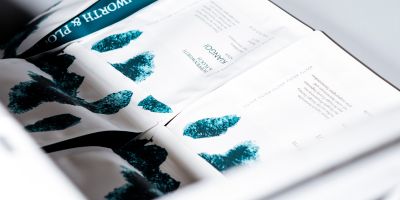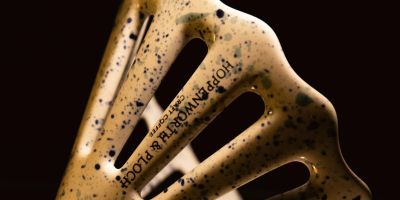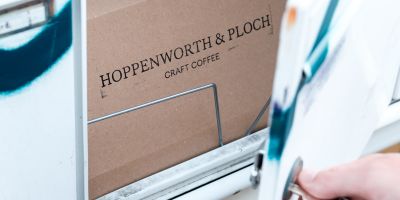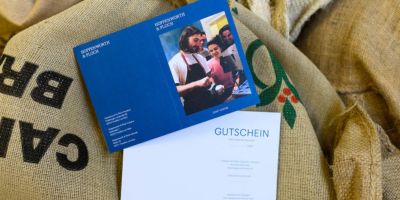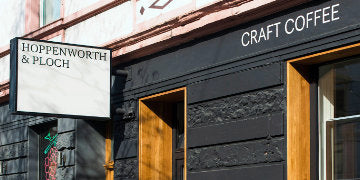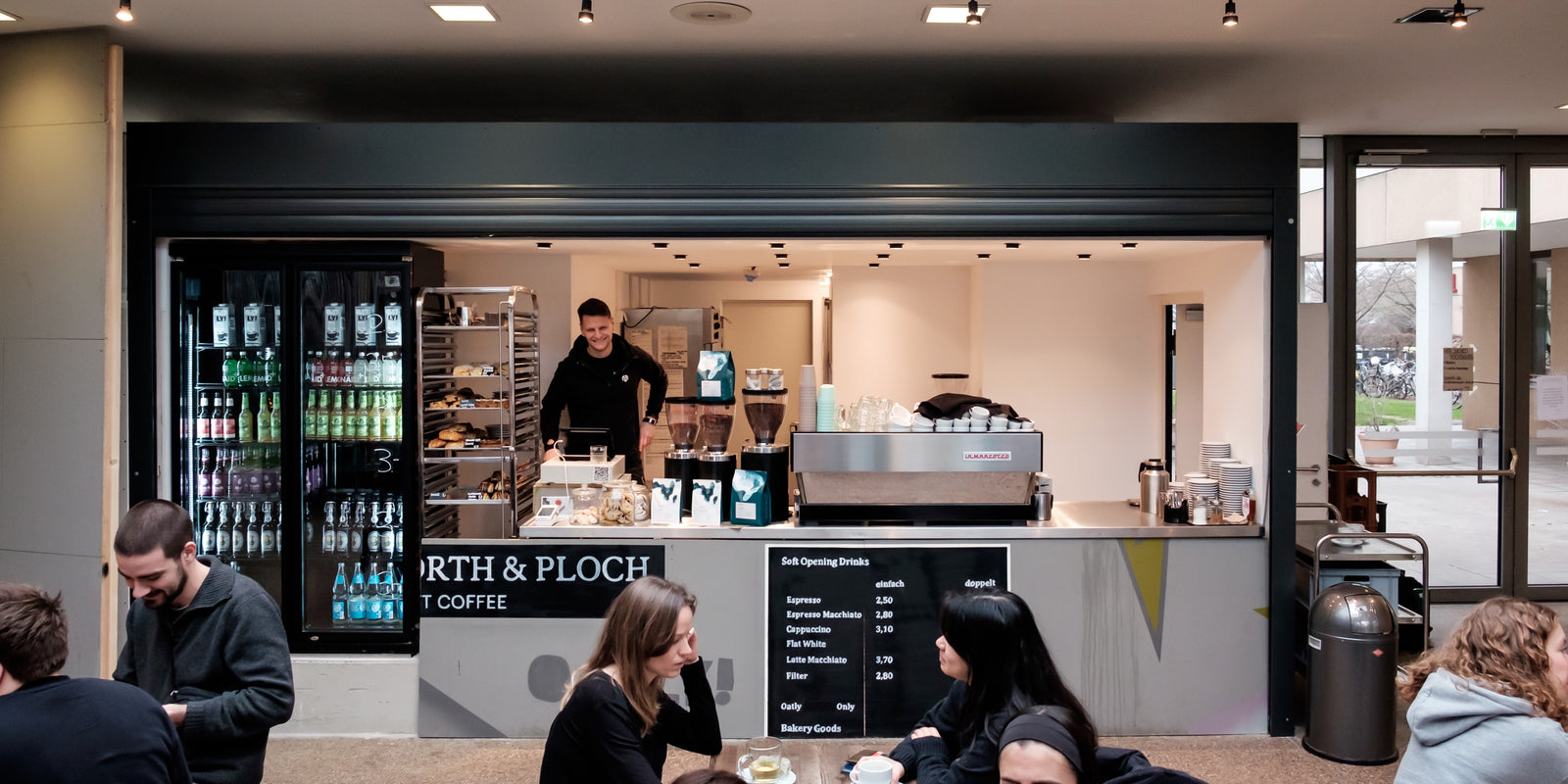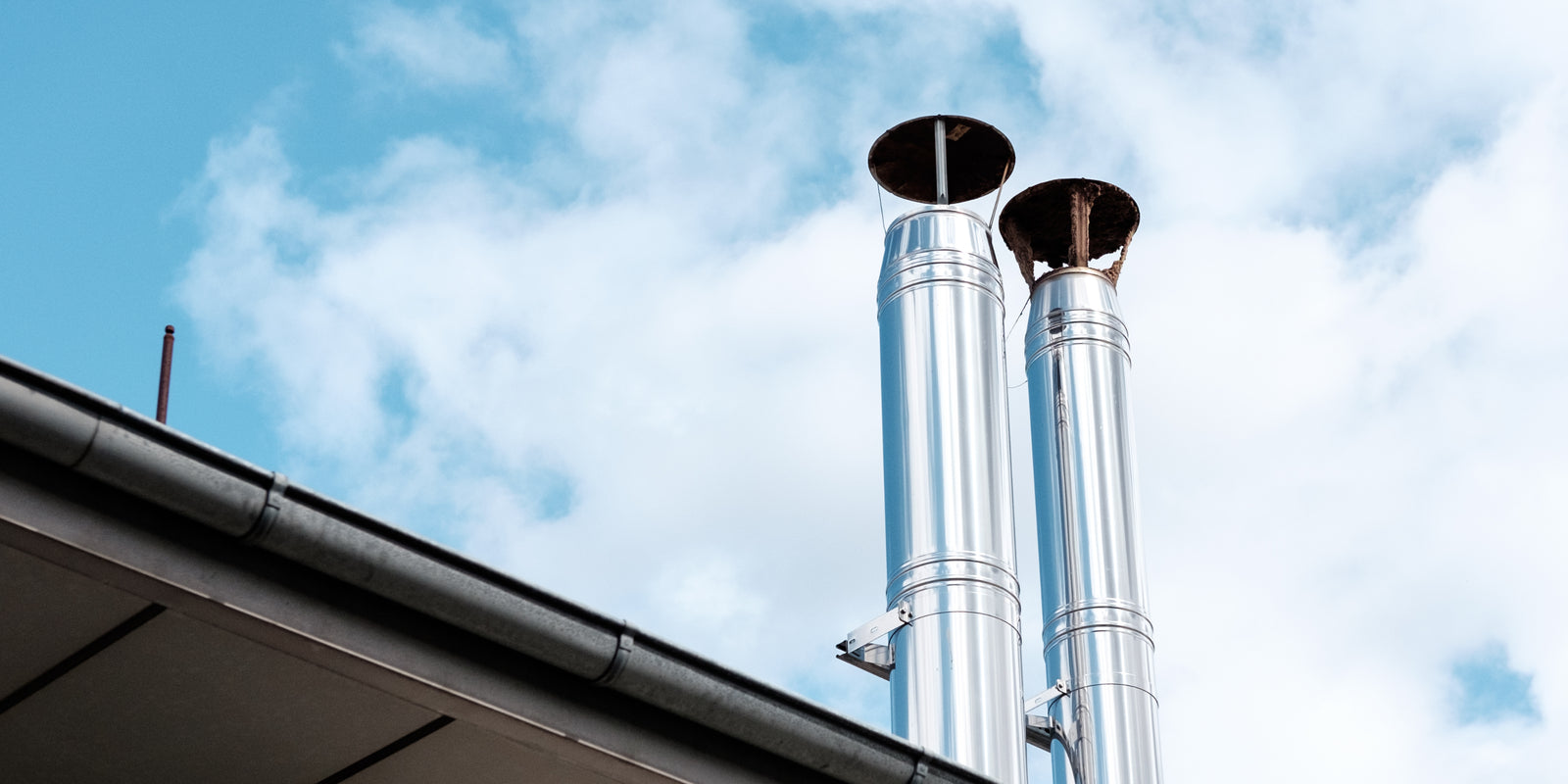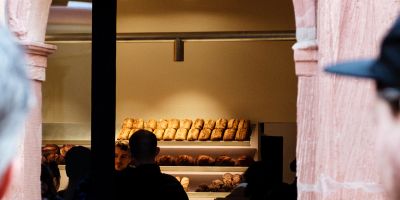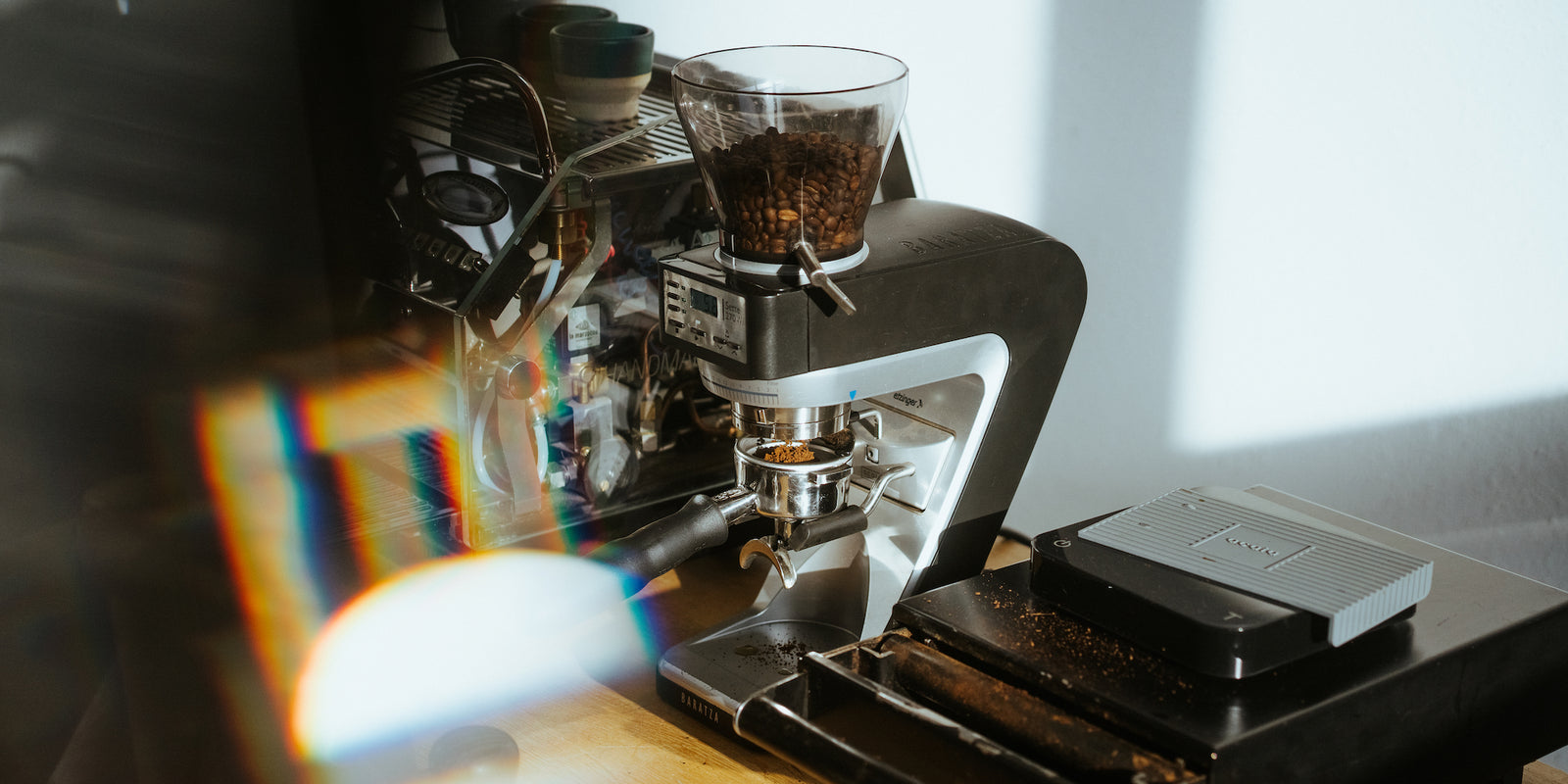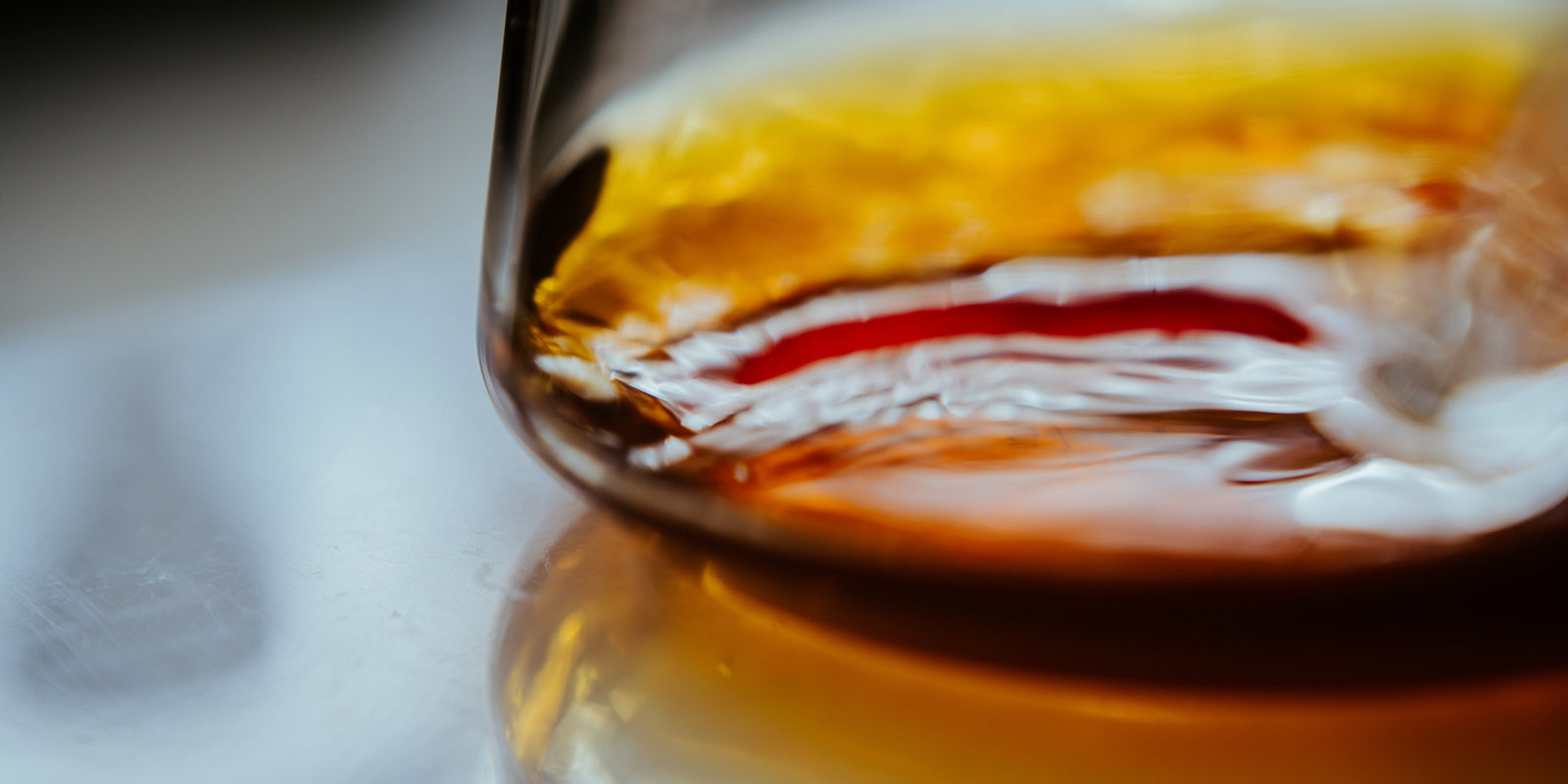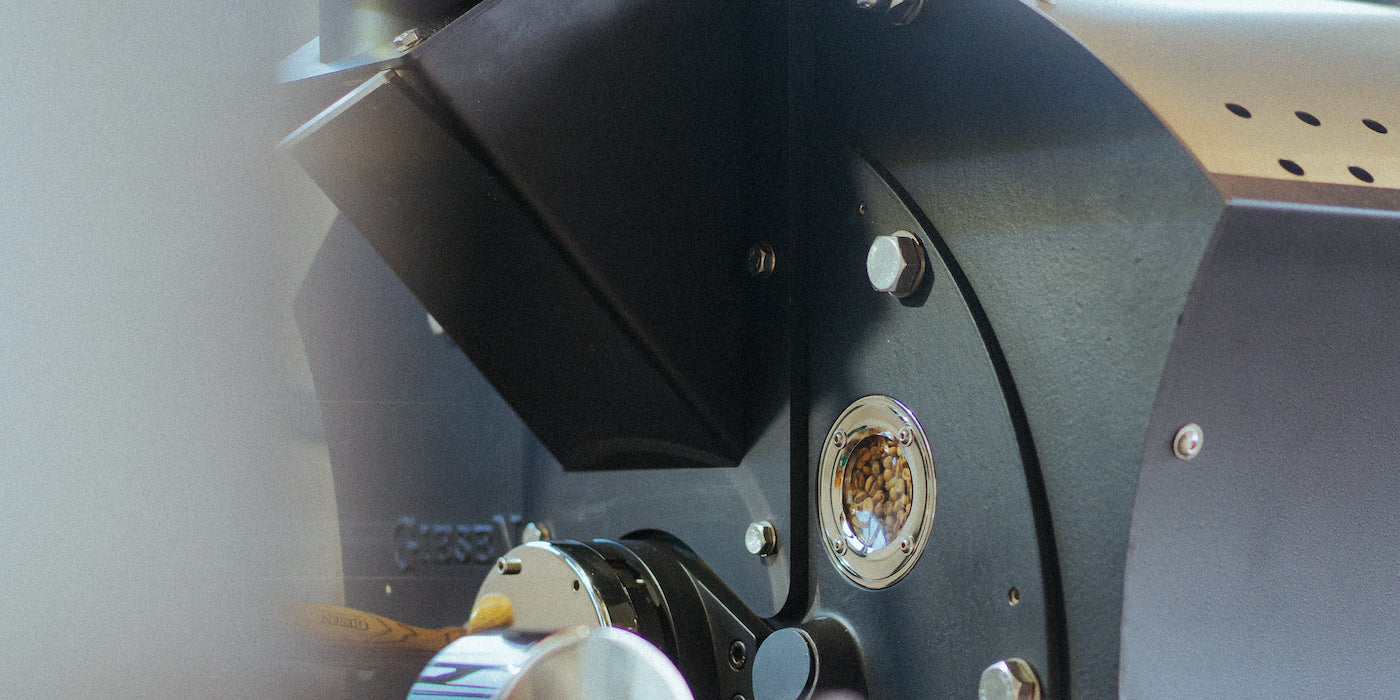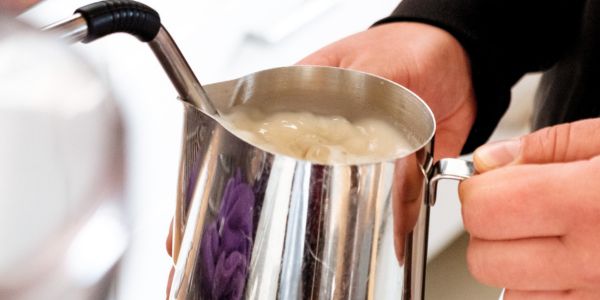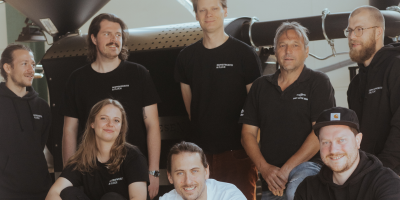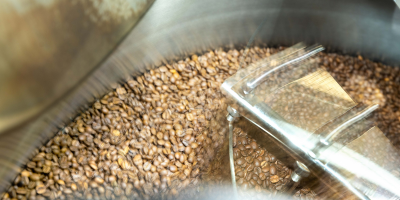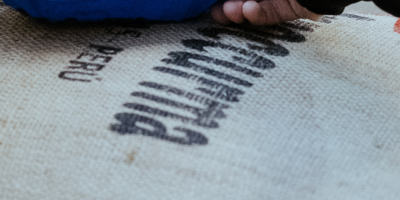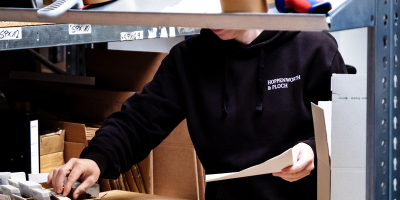Ihr Warenkorb ist leer
Versandkostenfrei in DE ab 39 € // Neue Seminartermine immer am ersten Freitag des Monats für den Folgemonat
Versandkostenfrei in DE ab 39 € // Neue Seminartermine immer am ersten Freitag des Monats für den Folgemonat
Locations
Kurse & Seminare
Über Uns
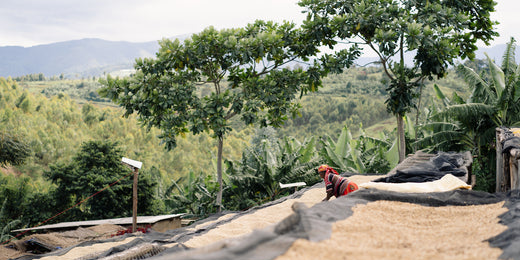
Kaffee aus Burundi - das Long Miles Coffee Project
Mai 12, 2021 15 min lesen.
English/Original Version below



Seit Kristy und Ben Carlson 2011 das Long Miles Coffee Project gründeten, haben sie einen enormen Einfluss für die lokalen Kaffeebauern und für Spezialitätenkaffee aus Burundi im Allgemeinen und haben Burundi auf die Karte des Spezialitätenkaffees gesetzt. Ein paar Zahlen? Während sie anfangs nur mit 50 Bauern zusammenarbeiteten, arbeiten sie jetzt mit über 5000 Kaffeebauern in der Kayanza-Region zusammen, die von 40 einzigartigen Hügeln stammen, und betreiben 3 Washing Stations, sowie eine Modellfarm.

Dabei produzieren sie hervorragende Kaffees, die das Potenzial und das Terroir der burundischen Kaffees wirklich zum Ausdruck bringen! Für uns repräsentiert Long Miles das immense Potenzial von Spezialitätenkaffee: großartigen Kaffee zu produzieren und gleichzeitig das Leben der Kaffeefarmer*innen zu verbessern.
Kurz gesagt, das Long Miles Coffee Projekt ist für uns ein Pionierprojekt im Bereich Spezialitätenkaffee.
Wir freuen uns jedes Jahr aufs Neue auf ihre Kaffees, von denen wir wissen, dass sie vor Ort eine immense positive Wirkung haben.
Wir wollen dieser Arbeit durch ihre Kaffees, aber auch durch ihre Geschichten eine Plattform geben! So freuen wir uns, dass wir ein Interview mit Seth Nduwayo, dem Qualitäts- und Produktionsmanager von Long Miles, führen konnten. Wir sprachen mit Seth über das Projekt im Allgemeinen, die Erntesaison, die Zusammenarbeit mit den Farmer*innen und über die Auswirkungen der Pandemie auf die Kaffeeproduktion.
Viel Spaß beim Lesen, vielleicht sogar mit einer leckeren Tasse unseres aktuellen Long Miles Kaffees!
Unser Interview mit dem Long Miles Coffee Project
Hoppenworth & Ploch (H&P): Hi Seth, vielen Dank, dass du dir die Zeit genommen hast, heute mit uns über die Arbeit des Long Miles Coffee Project in Burundi und auch über deine Rolle darin zu sprechen.
Lass uns doch mit einer kurzen Vorstellung deiner Person und deiner Rolle bei Long Miles beginnen.
Seth (S): Mein Name ist Seth Nduwayo, ich bin Burundier, geboren in Bujumbura. [Bujumbura ist die größte Stadt in Burundi, gelegen im Nordwesten des Landes]. Bei Long Miles bin ich für die Kaffeequalität und die Produktion zuständig. Ich habe 2015 als Teilzeitkraft bei Long Miles angefangen und wurde 2016 fest angestellt, zunächst als Assistant Manager der Washing Station in Bukeye. Nach drei Jahren wurde ich zum Leiter der Washing Station und nach einem weiteren Jahr zum Kaffeequalitäts- und Produktionsmanager befördert.
H&P: Wie würdest Du die Mission von Long Miles beschreiben?
S: Das Ziel von Long Miles ist es, unsere Gemeinschaft durch die Produktion von Qualitätskaffee zu verändern. Wir haben die Kaffee-Scouts, die den Bauern beibringen und helfen, wie profitabel es ist, Qualitätskaffee zu produzieren. Als Gegenleistung für den zusätzlichen Aufwand sorgen wir dafür, dass Long Miles bessere Preise anbietet. Zum Beispiel können wir auf den offiziellen Preis etwa 15-20 % des Einkommens für alle guten Kirschen aufschlagen. Das Ziel ist also generell, die Gemeinden durch die Produktion von hochwertigem Kaffee zu beeinflussen.
H&P: Wie sieht ein normaler Arbeitstag bei Dir aus?
S: Das ist keine leichte Frage. (lacht) Nicht alle Tage sind gleich, es hängt wirklich von der Zeit und dem Ort ab. Manchmal bin ich in Bujumbura, wo unser Hauptbüro ist, oder im Landesinneren an unseren Washing Stations oder unserer Dry Mill in Gitega. In Bujumbura sind es hauptsächlich Büro- und Laborarbeiten. Wenn ich im Landesinneren bin, dreht sich alles um die Kaffeeverarbeitung. Kirschannahme, Kirschverarbeitung, Fermentation, Sortierung, Trocknung - alles, was mit der Kaffeeproduktion zusammenhängt.
Kaffeeverarbeitung bei Long Miles
H&P: Gibt es einen Teil deiner Arbeit, der dir am meisten Spaß macht?
S: Die Verarbeitung von Kaffee besteht aus vielen Schritten, bei denen ein Schritt mit dem anderen verknüpft ist. Ich kann die Auswahl der Kirschen nicht ohne die Verarbeitung oder die Fermentation wertschätzen, oder ich kann die Trocknung nicht wertschätzen, ohne das Trockenmahlen zu genießen. Alles ist mit allem anderen verbunden. Ich mag die Verarbeitung von Kaffee im Allgemeinen und ich genieße fast jeden Schritt davon."
H&P: Und hast du einen Lieblingsprozess?
S: Mir gefallen die meisten unserer Kaffees. Wie ihr wisst, hat jeder Kaffee seine eigene Besonderheit. Jeder Kaffee wird besonders sein. Voll gewaschene Kaffees sind zum Beispiel sehr sauber, während die Naturals sehr süß und schokoladig sind. Geschmacklich bevorzuge ich allerdings die Naturals ein wenig mehr.
H&P: Ist die natürliche Aufbereitung schwieriger als die gewaschene Aufbereitung?
S: In Zeiten mit viel Regen, ja. Aber ansonsten nicht wirklich. Die Arbeiter drehen den Kaffee immer wieder, um sicherzustellen, dass er gleichmäßig trocknet. Während naturbelassene Kaffees über Nacht einfach auf dem Trockenbett bleiben können, müssen wir einen gewaschenen Kaffee während der Nacht entfernen. Das Trocknen von Naturkaffee nimmt zwar mehr Platz in Anspruch, aber das ist in Ordnung!

Die Erntesaison
H&P: Kommen wir zu der gerade begonnenen Ernte, kannst du uns einen Eindruck vom Beginn einer Erntesaison geben?
S: Wir haben jetzt einen Monat lang Kirschen an unseren Washing Stations empfangen. Aufgrund der verspäteten Reifung in diesem Jahr ist die Menge allerdings noch gering. Aber wir erwarten, dass das Volumen in den nächsten Wochen deutlich stiegt. Dennoch haben wir begonnen, den Druck zu spüren, der mit der Ernte einhergeht. Während der Ernte haben wir eine Menge Arbeit und Druck. Es gibt immer Arbeit, die bis zum Ende des Tages erledigt werden muss.
H&P: Was sind die größten Herausforderungen bei einer Ernte?
S: Im Allgemeinen gibt es keine Ernte ohne Herausforderungen. Und auch bei Herausforderungen fühlen wir uns in der Pflicht, guten Kaffee zu produzieren.
Aber große Herausforderungen sind zum Beispiel der Widerstand der Farmer bei der Kirschenselektion und die Regenmenge.
Widerstand der Farmer
Einige Farmer verstehen die Notwendigkeit der Kirschenselektion für besseren Kaffee und letztlich auch für eine bessere Bezahlung. Aber einige Farmer, vor allem diejenigen, die neu sind und ihren Kaffee gerade erst zu unseren Washing Stations gebracht haben, werden die Art und Weise, wie wir unsere Kaffees selektieren, nicht mögen. Sie werden sagen, dass wir zu streng sind.
Zu viel Regen oder nicht genug Regen
Bei zu viel Regen leidet der Trocknungsprozess zu sehr und kann sich von 10 auf 15 oder sogar 20 Tage verlängern. Wenn wir nicht vorsichtig genug sind, produzieren wir eine Art pilzigen oder schimmeligen Kaffee, was nicht gut für die Qualität ist. Es kann aber auch ein Mangel an Regen sein, der verhindert, dass die restlichen Kaffeekirschen, die sich noch an den Pflanzen befinden, reifen können.
Zusammenarbeit mit den Kaffee Farmer*innen in den Hügeln
H&P: Eine wichtige Säule der Arbeit von Long Miles ist der Betrieb von Washing Stations. Die Farmer bringen ihre Kirschen zu euren Washing Stations, wo die Kirschen sortiert werden und die Farmer entsprechend bezahlt werden. Aber, wie Du sagtest, werden einige einen gewissen Widerstand dagegen haben, weil es anders ist als die Praktiken anderer Washing Stations. Ich vermute also, ein weiterer wichtiger Teil eurer Arbeit ist die enge Zusammenarbeit mit den Farmer*innen auf ihren Farmen, ist das richtig?
S: Wir sind ein Unternehmen, das den Farmer*innen sehr nahe steht. Wir haben Vertreter auf den produzierenden Hügeln, die wir Kaffeescouts nennen. Die Kaffeescouts arbeiten auf den verschiedenen Hügeln und begleiten dort die Farmer*innen. Im Moment haben wir 26 Kaffeescouts. Sie sind für die Ausbildung der Farmer zuständig, sie begleiten die Farmer während des gesamten Produktionsprozesses, zum Beispiel wenn es Zeit ist, Dünger auszubringen oder wenn es Zeit ist, zu schneiden. Sie sind eine Art Botschafter von Long Miles in den Hügeln und stellen so die Verbindung zwischen Long Miles und der Erzeugergemeinschaft her. Sie helfen auch bei der Auswahl der reifer Kaffeekirschen am Baum, anstatt die Auswahl in der Washing Station zu treffen.
Das funktioniert gut mit Farmer*innen, die schon lange mit Long Miles zusammenarbeiten. Aber in den Hügeln, in denen wir keine Kaffeescouts haben, stoßen wir bei den Bauern auf mehr Widerstand und Herausforderungen. Die Rolle der Kaffeescouts ist also wirklich entscheidend für die Schulung und Ausbildung der Kaffeebauern und somit für unseren Kaffee.
H&P: Du sprichst von Hügeln, und die Kaffees von Long Miles sind in der Regel auch nach den Hügeln benannt, auf denen sie produziert wurden. Was steckt hinter diesem Konzept?
S: Das Konzept eines Hügels geht mit dem Konzept der Rückverfolgbarkeit einher. Long Miles ist ein Unternehmen für Spezialitätenkaffee, daher ist die Rückverfolgbarkeit unseres Kaffees, das Wissen, woher er kommt und wer ihn produziert, sehr wichtig für uns, aber auch für die Käufer und Verbraucher. Der Kaffee, der von einem Hügel oder, sagen wir, von einem Ort mit demselben Mikroklima oder ähnlichem Terroir kommt, hat tendenziell einen einzigartigen Geschmack, eine Art Gleichförmigkeit. Er kann eine gleichbleibend höhere Qualität haben, insbesondere im Vergleich zu einer Mischung aus allen Kaffeesorten von den verschiedenen Hügeln.
Daher wird das Konzept der Hügel für das Konzept der Rückverfolgbarkeit herangezogen. Zu Beginn der Kaffeeverarbeitung verkosten wir alle Kaffeesorten. Unter Berücksichtigung aller geografischen Merkmale bestimmen wir Kaffees mit ähnlichen Profilen und fassen sie zu Hügelkaffees oder Mikrolots zusammen. Ab diesem Zeitpunkt werden Kaffees von nahe beieinander liegenden Hügeln je nach Tassenprofil und geografischer Lage zusammen verarbeitet.
H&P: Wie viele Farmer*innen sind im Durchschnitt mit einem Hügel verbunden?
S: Es gibt eine große Spanne unter unseren Farmer*innen. Im Allgemeinen arbeiten wir mit sehr, sehr kleinen Farmer*innen zusammen. Es gibt Farmer*innen mit 30 Bäumen, einige mit 100 und andere mit 10.000 Bäumen. Es gibt also sehr große Lücken zwischen den Betriebsgrößen. Wir arbeiten im Durchschnitt mit 5000 Farmer*innen zusammen, und ein Hügel kann von zwischen 600-800 Farmer*innen bewirtschaftet werden. Unsere Lots werden also von demselben Hügel mit demselben Mikroklima stammen, aber es wird ein Lot sein, das aus Kaffee von vielen Farmer*innen besteht.
H&P: Ein Kaffee von Long Miles wird also nicht von einem*r bestimmten Farmer*in produziert oder kann auf ihn oder sie zurückgeführt werden.
S: Ja, das ist richtig. Wir können keine bestimmten Farmer*innen identifizieren. Daher kann ein Käufer auch keinen Kaffee von einem*r bestimmten Farmer*in kaufen. Aber wir stellen sicher, dass jede*r Farmer*in von dem Lot profitiert, in die seine oder ihre Kirschen geflossen sind. Wenn also ein Kaffee besonders gut ist und sich besonders gut verkauft, geben wir den Bonus an den ganzen Hügel und nicht an einzelne Farmer.*innen
Die einzige Charge, die vollständig auf eine Farm zurückgeführt werden kann, ist der Kaffee von unserer eigenen Long Miles Farm. Dort haben wir etwa 17.000 Bäume, die 50-70 Tonnen Kaffee ergeben, die separat verarbeitet werden können. Wir haben auch Farmer*innen, die zwar 4 Tonnen Kirschen produzieren, die sich aber auf 10 oder 15 Lieferungen über die ganze Saison aufteilen genauso wie Farmer*innen mit nur zwanzig Kilo. Diese Lots können wir nicht separat verarbeiten.
Die Auswirkungen der Pandemie
H&P: Das letzte (Pandemie-)Jahr war besonders hart für die Kaffeeindustrie und insbesondere für die Kaffeeproduzent*innen. Hatte und hat die Pandemie auch Auswirkungen auf eure Arbeit?
S: Normalerweise eröffnen wir die Erntesaison Ende März oder Anfang April, also genau dann, als die Pandemie letztes Jahr zuschlug. Zu Beginn der letzten Ernte waren wir also nicht sicher, ob wir Käufer für unseren Kaffee haben würden. Viele der Käufer sagten ihre Angebote ab, so dass wir unsere Ziele von 1000 Tonnen auf 500 Tonnen korrigierten. Doch fast am Ende der Ernte nahmen einige Leute ihre Bestellungen wieder auf oder bestätigten sie, nachdem sie sie mehrere Monate in der Schwebe gehalten hatten. Ohne die Pandemie hätten wir also viel mehr Kaffee verarbeiten und verkaufen können. Glücklicherweise sieht es dieses Jahr so aus, als ob sich die Leute an die Situation anpassen und ihre Nachfrage besser vorhersagen können. Wir haben das Gefühl, dass wir die Menge, die wir in diesem Jahr produzieren können, auch verkaufen können. Dieses Jahr ist also nicht so kritisch wie das letzte Jahr.
Unser aktueller Kaffee aus dem Long Miles Coffee Project ist der Heza - aufbereitet als voll gewaschener Kaffee in der Heza-Washing Station und angebaut auf der Long Miles Model Farm. Er ist unglaublich süß, erinnert an kandierte Zitrone, hat eine leicht blumige Note und eine pfirsichartige Säure. Ein echtes Highlight, das schon jetzt ein Favorit des Teams ist!
// English / Original Version //
Coffee from Burundi - the Long Miles Coffee Project
Since Kristy and Ben Carlson founded the Long Miles Coffee Projectin 2011 they have had a tremendous impact for the local coffee farmers and for specialty coffee from Burundi in general, putting Burundi on the map of specialty coffee. Some numbers? While they started out to work with just 50 farmers, they now work with over 5000 coffee farmers in the Kayanza region, from 40 unique hills and operate 3 washing stations & a model farm.
All the while, they produce outstanding coffees that truly express the potential and terroir of Burundian coffees! For us, Long Miles represents the immense potential of specialty coffee: to produce great coffee & at the same time improve the lives of coffee farmers.
In a nutshell, the Long Miles Coffee project is a pioneering project for us in the specialty coffee sector. Every year we really look forward to their coffees, which we know have an immense positive impact locally.
We want to give this work a platform through their coffees but also through stories! So we are pleased that we were able to conduct an interview with Seth Nduwayo, who ist the Quality and Production Manager of Long Miles. We talked with Seth about the project in general, the harvest season, their collaboration with farmers and about the impact of the pandemic on the coffee production.
Enjoy reading, maybe even with a delicious cup of our current Long Miles coffee!
Interview Long Miles Coffee Project & Hoppenworth & Ploch
Hoppenworth & Ploch (H&P): Hi Seth, thanks so much for taking the time to talk to us today about the work of the Long Miles Coffee Project in Burundi and your role in it, too.
Let’s start with a short introduction of yourself and your role at Long Miles.
Seth (S): My name is Seth Nduwayo, I’m Burundian, born in Bujumbura. [Bujumbura is the biggest city in Burundi, in the Northwest of the country]. At Long Miles I’m the Coffee Quality and Production Manager. I started working with Long Miles in 2015 as a temporary worker and became a permanent worker in 2016, starting as the Assistant Manager of the Bukeye washing station. After three years, I became the Washing Station Manager and after one more year the Coffee Quality and Production Manager.

H&P: How would you describe the mission of Long Miles?
S: The aim of long miles is to transform our community through the production of quality coffee. We have the coffee scouts who teach and help farmers on how profitable it is to produce quality coffee. In return for the extra effort we make sure that Long Miles is providing better pricing. For example, on the official price we can add around 15-20% of income on all the good cherries. So the aim in general is impacting communities through the production of high quality coffee.
H&P: How does a regular work day look for you?
S: That is not an easy question. [laughs] Not all days are similar, it really depends on the period and the location. Sometimes in Bujumbura where our main office is or upcountry at our washing stations or at our dry mill in Gitega. In Bujumbura its mostly office and lab work. When I’m upcountry its all about coffee processing. So, cherry reception, cherry processing, fermentation, grading, drying - all that is related to coffee production.
Coffee Processing at Long Miles
H&P: Is there a part of your work that you enjoy the most?
S: Processing coffee is composed of a lot of steps where one step is linked to another. I cannot enjoy cherry selection without processing or fermentation or I can not enjoy drying without enjoying dry milling. Everything is linked to everything else. I like processing coffee in general and I enjoy almost every step of that.“
H&P: And do you have a favourite process then?
S: I enjoy most of our coffees. As you know, each coffee will have its own particularity. Every coffee will be particular. For example fully washed coffees will be very clean, while the naturals will be very sweet and chocolatey. Taste wise, though, I prefer naturals a little bit more.
H&P: Is the natural processing more difficult than the washed processing?
S: In periods of much rain, yes. But other than that not really. Workers will keep rotating the coffee to ensure that it dries evenly. While natural coffees can just stay on the drying bed over night, we will need to remove a washed coffee during the night. The drying of natural does take up more space but that’s fine!
The harvest season
H&P: Moving on to the harvest that has just started, can you give us an impression about the start of a harvest season?
S:We have now done one month of receiving cherries at our washing stations. Though, due to belated ripening this year, the volume is still small. But we will expect more coffees rolling in in the upcoming weeks. Nevertheless, we have started to feel that pressure that comes with the harvest. During the harvest we have a lot of work and pressure. There is always work that needs to be finished by the end of the day.
H&P: What are the major challenges of a harvest?
S: In general, there is no harvest without challenges. And even in the case of challenges we feel the obligation to produce good coffee.
But major challenges are for example farmer’s resistance to cherry selection and the amount of rain.
Farmers resistance
Some famers will understand the need for cherry selection for better coffee and in the end, better payment. But some farmers, especially those that are new and have just started bringing their coffee to our washing stations, won’t like the way we select our coffees. They will say we’re too strict.
Too much rain or not enough rain
With too much rain the drying process suffers too much and can increase from 10 to 15 or even 20 days. If we are not careful enough we will produce a kind of funny or mouldy coffee which is not good for quality. But it can also be lack of rain, which prohibits the the rest of the coffee cherries that are still on the plants to ripen.
Collaboration with coffee farmers on the hills
H&P: One important pillar of the work of Long Miles is washing station ownership. Farmers bring their cherries to your washing stations where the cherries are graded and farmer’s paid accordingly. But, as you said, some will have a certain resistance against that because it’s different from the practices of other washing stations. So I guess another important part of your work is working closely with the farmers on their farms as well, is that right?
S:We are a company that is close to farmers. We have representatives on the producing hills, which we call coffee scouts. The coffee scouts are working on the different hills and reside there with the farmers. Right now we have 26 coffee scouts. They are in charge with the farmers education, they accompany the farmers in the whole producing process, for example when it is time to apply fertilisers, or when it is time to prune. They are kind of ambassadors of Long Miles in the hills. Moreover, they connect Long Miles to the producing community. They also help to select farmers on the tree instead of doing the selection at the washing station.
This is something which works well with farmers who have been with Long Miles for a long time. But in those hills where we don’t have coffee scouts, we will face more resistance and challenges with farmers. Where we don’t have coffee scouts we will face more resistance and challenges from farmers. So the role of the coffee scouts is really crucial in training and educating coffee farmers.
H&P: You were talking about hills and the coffees from Long Miles are also usually named after the hills that they were produced upon. What is behind the concept?
S: The concept of a hill goes with the concept of traceability. Long Miles is a specialty coffee company so tracing our coffee, knowing where it comes from and who is producing that is very important to us, as well as for the buyers and consumers. The coffee that is coming from one hill, or let's say one location with the same micro climate or similar terroir will tend to have a unique flavour, a kind of uniformity. It can have consistently higher quality, especially compared to a blend from all the coffees from the different hills.
Hence, the concept of hills is evoked for the concept of traceability. At the beginning of coffee processing we taste all the coffees. And looking at all the geographic characteristics we determine coffees who have similar profiles and combine them into hill coffees or microlots. From that time coffee from close hills will be processed together depending on their cup profile and geographic location.
H&P: How many farmers are associated with a hill on average?
S: There is a huge divide among our farmers. In general, we work with very very small scale farmers. There are farmers with 30 trees, some with 100 and other with 10.000 trees. So there are very big gaps between the farm sizes. We are working with 5000 farmers on average, and one hill could have between 600-800 farmers. So our lots will come from the same hill with the same micro climate but it will be a lot that is made of coffee from many farmers.
H&P: Hence, a coffee from Long Miles won’t be produced or can be traced back to to one particular farmer.
S: Yes, that is correct. We cannot identify specific farmers. Hence, a buyer cannot buy coffee from a specific farmer. But we make sure that every farmer profits from the lot that his cherries went to.So in case where a coffee is particularly good and sells particularly well, we will give the bonus to the whole hill instead of a single farmer.
The only lot that is completely traceable to one farm is the coffee from our own Long Miles farm. There we have around 17.000 trees, which will amount to 50-70 tons of coffee that can be processed separately. We also have farmers who produce 4 tons of cherries, but split up into 10 or 15 deliveries over the whole season or farmers with just twenty kilos. We cannot process these lots separately.
The effect of the pandemic
H&P: The last (pandemic) year has been particularly hard for the coffee industry, and especially for the producers of coffee. Did and does the pandemic affect your work, too?
S: Normally, we open the harvest season at the end of march or beginning of April, so right when the pandemic hit last year. So at the beginning of last harvest we weren’t sure whether we would have buyers for our coffee. A lot of the buyers were cancelling their offers, so we adjusted our targets from 1000 tons to 500 tons. Though, almost at the end of the harvest some people resumed ordering or confirmed orders after several months where they kept them pending. So, without the pandemic we could have processed and sold much more coffee. Luckily, this year it looks like people are adapting to the situation and can predict their demand better. We feel like whatever volume we can produce this year we can also sell. So this year isn’t as critical as last year has been.
H&P: Thank you so much for your time and the insights into your work! We will definitely continue buying coffee from you and are looking forward to the next harvest. 
Our current coffee from the Long Miles Coffee Project is the Heza - processed as a fully washed coffee at the Heza washing station and farmed at the Long Miles Model Farm. It's incredibly sweet, reminiscent of candied lemon, has a slight floral touch and a peach-like acidity. A real gem that is already a team favourite!
Join our Coffee Crew
10% Rabatt auf Deine 1. Kaffeebestellung.Und mehr: Melde Dich für unseren Newsletter an und verpasse keine Kaffee-Releases, Angebote und Hintergrundgeschichten mehr.

Never miss out on great coffee again!
Jeden Monat ein neuer, frischer Kaffee für zuhause? Egal ob Filter oder Espresso - mit unserem Kaffee Abo begibst du dich regelmäßig auf eine kleine sensorische Weltreise durch die Welt des Kaffees - weltweit versandkostenfrei!

